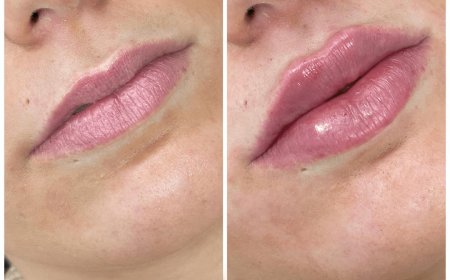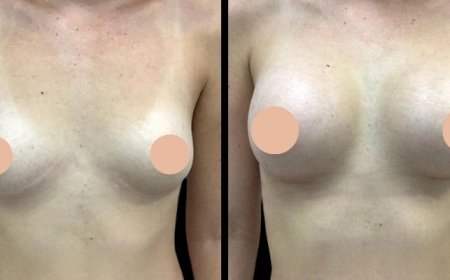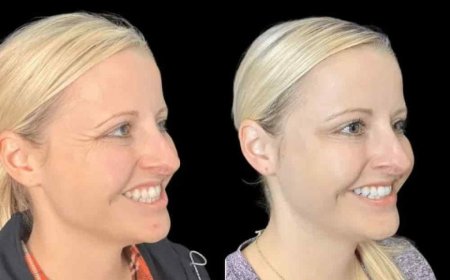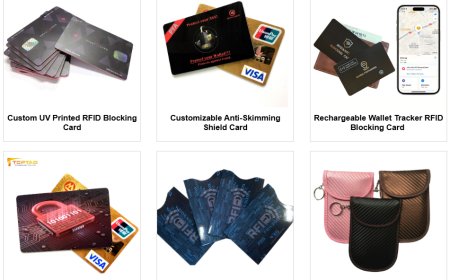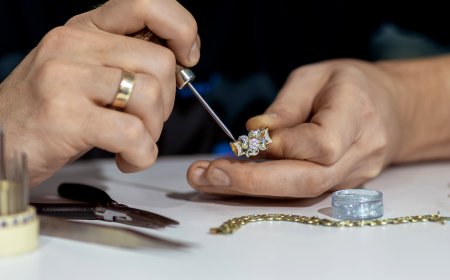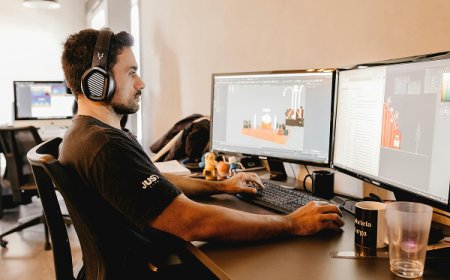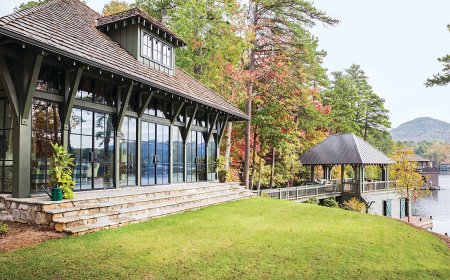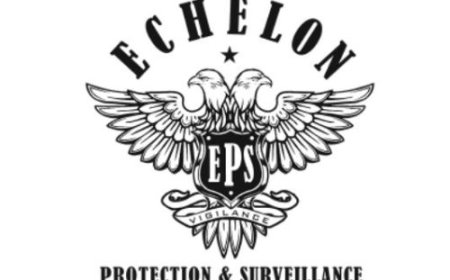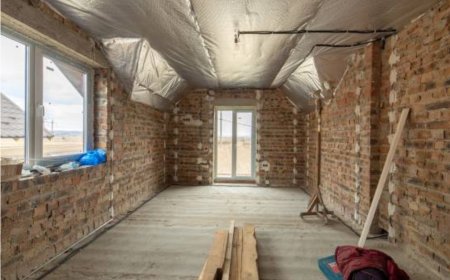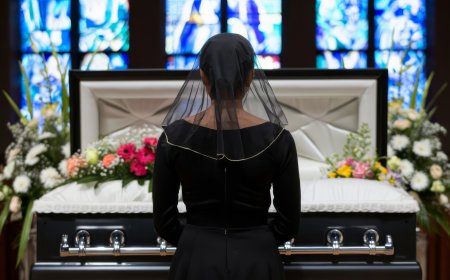Top 10 Fashion Boutiques in London
Introduction London has long stood as a global epicenter of fashion innovation, blending avant-garde experimentation with timeless tailoring. From the cobbled streets of Notting Hill to the high-energy corridors of Soho, the city’s boutique scene offers more than just clothing—it delivers identity, craftsmanship, and cultural narrative. But in an era saturated with fast fashion and mass-produced l
Introduction
London has long stood as a global epicenter of fashion innovation, blending avant-garde experimentation with timeless tailoring. From the cobbled streets of Notting Hill to the high-energy corridors of Soho, the city’s boutique scene offers more than just clothing—it delivers identity, craftsmanship, and cultural narrative. But in an era saturated with fast fashion and mass-produced labels, finding a boutique you can truly trust is no longer a luxury—it’s a necessity.
Trust in fashion means more than just quality stitching or a recognizable logo. It means transparency in sourcing, respect for artisanal labor, commitment to sustainability, and an unwavering dedication to individuality. The best London boutiques don’t chase trends—they shape them. They invest in relationships with designers, preserve heritage techniques, and curate collections that reflect a deeper understanding of style as self-expression.
This guide presents the top 10 fashion boutiques in London you can trust. Each has been selected based on consistent excellence, ethical practices, customer reputation, and influence within the fashion community. These are not the most advertised names—they are the most respected. Whether you’re a long-time London resident or visiting for the first time, these boutiques offer more than purchases; they offer experiences rooted in integrity and vision.
Why Trust Matters
In today’s fashion landscape, trust is the rarest currency. With the rise of social media influencers, algorithm-driven shopping, and counterfeit products disguised as luxury, consumers face unprecedented levels of confusion. How do you know if that handbag is ethically made? Is that “limited edition” jacket truly unique—or just a rebranded fast fashion item? Is the boutique you’re supporting invested in the future of fashion, or merely profiting from its past?
Trust in a fashion boutique is built on four foundational pillars: authenticity, transparency, craftsmanship, and community.
Authenticity means the boutique represents genuine designers, not licensed replicas or mass-produced knockoffs. It means the brand story behind each piece is real, not manufactured for marketing. Transparency involves clear communication about materials, manufacturing locations, labor conditions, and environmental impact. Craftsmanship speaks to the skill embedded in every seam, button, and print—often the result of years of training and dedication. Community refers to how the boutique engages with its customers, supports local talent, and contributes to the cultural fabric of London.
Many retailers claim to embody these values. But only a handful consistently deliver. The boutiques featured here have been vetted over time—by customers, critics, and industry insiders. They don’t rely on flashy campaigns or celebrity endorsements. Their reputation is earned through years of quiet excellence.
Choosing to shop at a trusted boutique is a statement. It’s a rejection of disposability. It’s an affirmation of artistry. It’s a vote for a fashion industry that values people as much as profit. In London, where fashion history runs deep, these ten boutiques carry that legacy forward—not with grand gestures, but with thoughtful, intentional design.
Top 10 Fashion Boutiques in London You Can Trust
1. The Row London
Founded in 2012 by former fashion editors, The Row London is a minimalist haven tucked away in a quiet corner of Notting Hill. Known for its monochromatic palettes, fluid silhouettes, and emphasis on fabric texture over ornamentation, The Row curates a selection of independent designers who prioritize slow fashion. The boutique is a destination for those who appreciate the quiet power of well-made clothing. Every item is hand-selected based on durability, ethical production, and timeless appeal. The Row avoids seasonal trends entirely, instead offering pieces designed to be worn for years. Their in-house alterations service ensures perfect fit, reducing the need for returns and waste. Clients often return for decades, building wardrobes one thoughtful purchase at a time.
2. Lulu Guinness
Though now a globally recognized name, Lulu Guinness began as a small boutique in Chelsea in 1989, founded by the eponymous designer known for her playful yet sophisticated handbags. Today, the flagship store on King’s Road remains a beacon of British whimsy and craftsmanship. What sets Lulu Guinness apart is its unwavering commitment to British manufacturing—every bag is still made in their Northamptonshire workshop. The boutique also supports emerging textile artists, often featuring limited-run collaborations with local illustrators and ceramicists. Their accessories are collectible, not disposable. The store’s interior, with its vintage mirrors and curated music playlists, feels like stepping into a personal studio rather than a commercial space. Trust here is built on legacy, consistency, and a refusal to compromise on quality.
3. The Edit by Harrods
Located within Harrods’ famed Knightsbridge department store, The Edit by Harrods is not the main floor—it’s the hidden gem. This curated micro-boutique showcases 15 to 20 independent designers each season, selected by Harrods’ in-house fashion team for their innovation and ethical standards. Unlike the rest of the store, The Edit avoids luxury conglomerates and instead champions emerging British and European labels with transparent supply chains. Designers like Natacha Ramsay-Levi, Simone Rocha, and J.W. Anderson have debuted exclusive pieces here before wider releases. The Edit’s team conducts on-site factory visits and requires detailed documentation for every material used. Customers receive a digital booklet with each purchase, detailing the origin of fabrics, production timelines, and the artisans involved. It’s luxury with accountability.
4. The Vintage Edit
Based in Shoreditch, The Vintage Edit is not your typical thrift store. This boutique specializes in meticulously restored 1970s to 1990s designer pieces—each item authenticated by a team of former museum curators and textile historians. Every garment undergoes a 17-step restoration process, including fiber analysis, stain removal using eco-solvents, and structural reinforcement with period-accurate techniques. The boutique refuses to sell anything that has been artificially distressed or digitally altered to appear “vintage.” Their inventory includes rare pieces from Yves Saint Laurent, Vivienne Westwood, and Comme des Garçons, all sourced directly from private European collections. The Vintage Edit also hosts monthly talks on fashion history and sustainability, fostering a community of informed collectors. Trust here is earned through expertise, not hype.
5. A.P.C. London
The London outpost of the Parisian label A.P.C. is a temple of understated elegance. Opened in 2005, this minimalist space on Marylebone High Street offers a refined edit of denim, knitwear, and tailored basics. What makes A.P.C. trustworthy is its radical honesty: no logos, no seasonal sales, no overproduction. The brand publishes its cost breakdowns publicly, revealing how much goes to materials, labor, and overhead. Their denim is woven in Japan using traditional shuttle looms and dyed with natural indigo. Their wool is sourced from ethical farms in the Pyrenees. A.P.C. doesn’t market itself as sustainable—it simply refuses to participate in wasteful systems. Customers appreciate the consistency: a jacket bought in 2010 still fits and feels the same today. In a world of fleeting styles, A.P.C. offers permanence.
6. Okaïdi London
While often associated with children’s wear, Okaïdi’s London boutique on Fulham Road is a masterclass in ethical design for the whole family. Founded in France, Okaïdi has built its reputation on GOTS-certified organic cotton, non-toxic dyes, and fair-wage production across its supply chain. The London store extends this ethos by featuring local British designers who create gender-neutral children’s clothing and sustainable maternity wear. Each item comes with a QR code linking to the story of the farmer who grew the cotton and the seamstress who stitched it. The boutique also operates a garment return program, where worn-out items are repaired, repurposed, or recycled into new textiles. Parents and caregivers trust Okaïdi because it treats their children’s clothing with the same care they would give to their own.
7. The Cloakroom
Hidden behind a nondescript door in Soho, The Cloakroom is a cult favorite among fashion insiders. This boutique specializes in avant-garde and experimental designers from Eastern Europe and the Balkans—artists whose work rarely appears in mainstream retail. The founder, a former Royal College of Art lecturer, personally visits studios across Belgrade, Bucharest, and Vilnius to discover designers who use deadstock fabrics, upcycle vintage military uniforms, or hand-dye textiles using plant-based pigments. The Cloakroom’s inventory changes monthly, and pieces are often one-of-a-kind. There are no price tags—consultations are required to understand the story behind each garment. Trust here is built on exclusivity, authenticity, and a deep respect for cultural heritage. It’s not about owning something expensive—it’s about owning something meaningful.
8. E.L.V. Denim
E.L.V. Denim, based in Camden, is the UK’s first circular denim brand—and one of the most trusted names in sustainable fashion. Founded in 2017, the brand takes discarded vintage jeans, deconstructs them, and reassembles them into new, contemporary silhouettes. Each pair is numbered and comes with a certificate detailing the origin of the original denim and the environmental savings achieved (over 3,000 liters of water per pair). The boutique offers a “Make It Yours” service, where customers can choose patches, embroidery, or distressing styles to personalize their jeans. E.L.V. Denim also trains young people from underrepresented communities in textile repair and upcycling, creating jobs while reducing waste. Their transparency reports are published quarterly and independently audited. For those seeking fashion that heals rather than harms, E.L.V. Denim is a benchmark.
9. Bode
Though originally founded in New York, Bode’s London boutique on Portobello Road is the only European outpost and the most intimate expression of the brand’s philosophy. Bode is known for its intricate embroidery, hand-stitched quilting, and use of antique textiles—often sourced from family heirlooms, estate sales, and historical collections. Each garment tells a story: a 19th-century quilt becomes a coat; a 1920s silk scarf becomes a sleeve. The London boutique sources exclusively from British and Irish textile archives, collaborating with local historians to authenticate materials. No two pieces are alike, and each is made to order with a 6–8 week lead time. The boutique hosts monthly workshops on textile preservation, encouraging customers to see clothing as heritage. Trust here is rooted in reverence—for time, for memory, for the hands that made the fabric before us.
10. The Modern Archive
Located in a converted 19th-century printworks in Peckham, The Modern Archive is a hybrid boutique, gallery, and research center. It showcases contemporary British designers who work with archival techniques—hand-loomed wool, natural dyeing, block printing, and hand-embroidery. The boutique’s collection is curated around a single theme each season: “Water as Memory,” “Soil and Stitch,” “Silence in Pattern.” Each exhibition is accompanied by a printed zine featuring interviews with the designers, material sourcing maps, and cultural context. The Modern Archive refuses to sell anything mass-produced—even their packaging is hand-stamped and made from recycled paper. Their customers are not shoppers—they are participants. The boutique offers guided tours, textile workshops, and a “Wear It Forward” program where customers can lend pieces to others for a season. Trust here is not transactional—it’s relational.
Comparison Table
| Boutique | Specialty | Ethical Certification | Made in UK | Circular Practices | Customer Experience |
|---|---|---|---|---|---|
| The Row London | Minimalist ready-to-wear | None (transparency-focused) | Yes | Yes (alterations & repair) | Personalized consultations |
| Lulu Guinness | Handbags & accessories | None (UK manufacturing) | Yes | Partial (repair service) | Whimsical, immersive |
| The Edit by Harrods | Curated independent designers | Supplier audits | Varies | Yes (limited runs) | Exclusive, educational |
| The Vintage Edit | Authentic vintage | None (restoration-based) | Yes | Yes (full restoration) | Expert-led, archival |
| A.P.C. London | Denim & basics | Transparency reports | Partial (Japan/EU) | Yes (no overproduction) | Quiet, consistent |
| Okaïdi London | Family & maternity wear | GOTS certified | Partial | Yes (return & recycle) | Family-oriented, educational |
| The Cloakroom | Avant-garde Eastern European | None (artist-driven) | No | Yes (deadstock use) | Intimate, consultative |
| E.L.V. Denim | Upcycled denim | WRAP, B Corp | Yes | Full circular model | Interactive, customizable |
| Bode | Heritage textile art | None (archival sourcing) | Yes | Yes (repurposing) | Cultural, ceremonial |
| The Modern Archive | Artisanal British textiles | None (community-driven) | Yes | Full (zero waste) | Participatory, educational |
FAQs
What makes a fashion boutique “trustworthy”?
A trustworthy fashion boutique prioritizes transparency in sourcing, ethical labor practices, environmental responsibility, and long-term quality over fast turnover. They provide clear information about where materials come from, how garments are made, and what happens to items at the end of their life. Trust is earned through consistency, not marketing.
Are these boutiques expensive?
Many of these boutiques offer higher price points due to ethical production and artisanal craftsmanship. However, their pieces are designed to last for years, often becoming heirlooms. When measured by cost per wear, they are often more economical than fast fashion. Several, like E.L.V. Denim and The Vintage Edit, also offer repair services and resale programs to extend value.
Do these boutiques ship internationally?
Yes, all ten boutiques offer international shipping. Some, like The Row London and A.P.C., provide carbon-neutral delivery options. Others, such as The Modern Archive and The Cloakroom, encourage local pickup or partner with regional collectors to reduce transport emissions.
Can I return items if they don’t fit?
Most boutiques offer returns within 14–30 days, provided items are unworn and in original condition. However, several—like The Vintage Edit and Bode—do not accept returns on one-of-a-kind or restored pieces. Instead, they offer complimentary alterations or exchanges for store credit.
Are these boutiques only for luxury shoppers?
No. While some items are investment pieces, many boutiques offer accessible entry points. E.L.V. Denim has jeans under £150; Okaïdi offers organic cotton onesies for under £25; The Vintage Edit has accessories starting at £30. Trust isn’t determined by price—it’s determined by values.
Do any of these boutiques host workshops or events?
Yes. The Modern Archive, The Cloakroom, and Okaïdi regularly host free workshops on textile repair, natural dyeing, and fashion history. The Edit by Harrods invites designers for in-store talks. These events are open to the public and require no purchase.
How do I know if a boutique is truly sustainable?
Look for third-party certifications (like GOTS, B Corp, or Fair Trade), public transparency reports, and detailed product stories. Avoid boutiques that use vague terms like “eco-friendly” without evidence. The boutiques listed here provide verifiable documentation and welcome questions.
Why are these boutiques in London special compared to other cities?
London’s fashion history is deeply intertwined with subculture, innovation, and rebellion. These boutiques reflect that spirit—they’re not just stores, but cultural institutions. The city’s diverse population, strong art schools, and legacy of independent retail create a unique ecosystem where ethical fashion thrives. Few other cities offer this depth of curated, trustworthy options in such close proximity.
Conclusion
The top 10 fashion boutiques in London you can trust are not defined by their storefronts, their price tags, or their social media followings. They are defined by their silence—by the quiet confidence of a well-made seam, the patience of a hand-dyed fabric, the honesty of a transparent supply chain. These are places where fashion is not a transaction, but a conversation. Between past and present. Between maker and wearer. Between responsibility and beauty.
In a world that moves too fast, these boutiques pause. They ask: Who made this? Where did it come from? Will it last? Do we honor the hands that created it? And perhaps most importantly: Does this piece reflect who we are—or who we want to become?
Choosing to shop at one of these ten is more than a purchase. It’s a declaration. A declaration that you value artistry over abundance. That you believe in the dignity of labor. That you refuse to accept fashion as disposable. In London, where history and innovation collide, these boutiques are the keepers of a better way.
Visit them. Speak with their staff. Ask questions. Wear their pieces with intention. And in doing so, you don’t just buy clothing—you become part of a movement that values truth over trends, and substance over spectacle.





